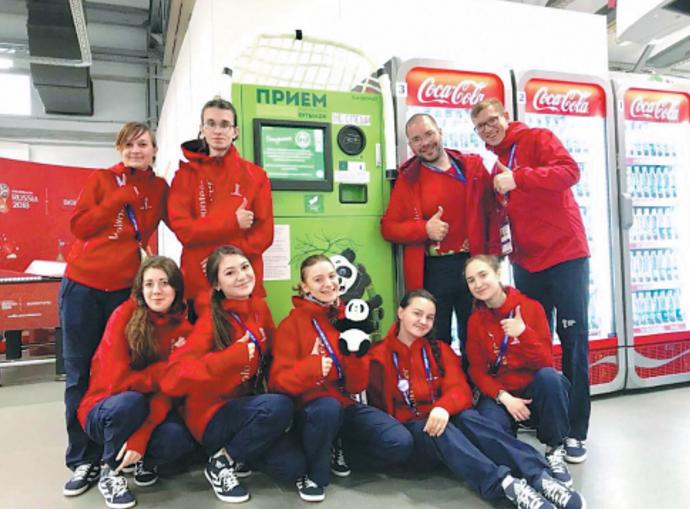Turning waste into wealth


Preferential policies combined with strong and urgent demand are encouraging players into the recycling business
The monthlong 2018 FIFA World Cup in Russia is expected to attract an estimated 3.4 billion viewers worldwide, according to research firm GlobalWebIndex.
That means nearly half of the world's population will be following the 64 matches to decide the one winner to raise the golden trophy.
One of the key features that makes this World Cup edition special is its eco-friendly commitment, as indicated in the Sustainability Strategy promoted by FIFA and the Russian Local Organizing Committee, which aims to make this a "greener and more sustainable" World Cup.
Across the 12 stadiums certified as eco-friendly, a system has been implemented to manage and recycle waste, which is expected to help reduce the negative environmental impact, said Alexey Sorokin, CEO of the Russia 2018 LOC, in a news release.
Besides regular recycling bins, green-colored machines spotted at these venues have been drawing attention. It's a fancy, high-tech novelty that collects plastic bottles and promises to turn them into chic T-shirts and tote bags. And it is China-made.
Despite the absence of China's national soccer team at the tournament, the green technology coming from the country has been welcomed by local communities in Russia and soccer fans from all over the world.
An active group of Russian volunteers has been guiding spectators at the stadiums to recycle plastic bottles properly, said Liu Xuesong, executive vice-president of Incom Recycle, the creator and operator of the plastic recycling system, in an interview with Xinhua News Agency.
Imagine this: After finishing a bottled drink, you can easily locate a recycling machine near where you are, find it, put your empty bottle in it and get a reward.



































